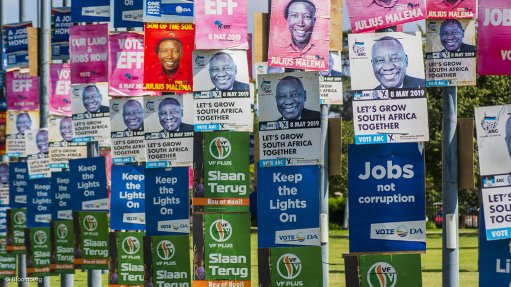Trade facilitation
The danger of using any term is that it might well mean different things to different people. The term ‘trade facilitation’ is no different. While it has been around for quite some time, it burst onto the international trade stage during the Ninth Ministerial Conference of the World Trade Organisation (WTO), held in Bali, Indonesia, from December 3 to 7, 2013.
Strange though it seems, there is no single universally accepted definition of trade facilitation, although it tends to be understood as the simplification and harmonisation of international trade procedures, including import and export procedures. The complexity of trade facilitation is best described by Nirmal Sengupta in his book, The Economics of Trade Facilitation, in which he states: “Arrangements that help the seller of a good to know who are willing to buy are trade facilitation; those that help willing buyers to learn, and learn quickly, where and from whom to get a particular good they need are trade facilitation. Regulations that protect trade and the interest of genuine traders in situations of unequal bargaining are trade facilitation. Making transport cheaper and more secure is trade facilitation. Making the payment process easier and faster is trade facilitation. Protecting genuine trades against cheating and fraudulent practices is trade facilitation.”
Trade facilitation is part of the yet-to-be-concluded Doha Development Round, which started in 2001, and the first agreement to be reached in this round. On December 6, 2013, WTO members concluded negotiations regarding a trade facilitation agreement (TFA). The TFA contains provisions for expediting the movement, release and clearance of goods, including goods in transit. It also sets out measures for effective cooperation between customs and other appropriate authorities on trade facilitation and customs compliance issues. It further contains provisions for technical assistance and capacity building in this area.
Immediately following the WTO Ministerial conference, the World Customs Organisation (WCO) Policy Commission adopted the Dublin Resolution at its meeting on December 11, 2013, which committed the WCO to the efficient implementation of the TFA. The WCO Working Group on TFA was established as the platform for sharing experiences regarding the implementation of the TFA and to enhance coordination between the WCO, donors, other international organisations and the private sector. The WCO also launched its Mercator programme, which aims to provide tailor-made technical assistance for implementing the TFA and supporting the harmonised implementation, based on the WCO’s international standards, instruments and tools. Customs administrations are now playing their part in the TFA implementation in collaboration with government agencies. The importance of the TFA is emphasised by the WCO, whose theme for 2015 is ‘Coordinated Border Management – An inclusive approach for connecting stakeholders’.
Following lengthy deliberations, the WTO’s general council on November 27 adopted the protocol of amendment to the TFA, inserting the TFA into Annex 1A of the WTO agreement, which is considered a critical step in the implementation of the TFA. What now lies ahead is for WTO members to work closely with their capitals and begin the process of ratification. The TFA will enter into force once two-thirds of WTO members have completed their domestic ratification process.
According to the WCO, it and the WTO have a long-standing history of cooperation and, as Annex D organisations (which include, among others, the International Monetary Fund, the Organisation for Economic Cooperation and Development, the United Nations Conference on Trade and Development and the World Bank), have supported the trade facilitation negotiating process since its inception. The WCO, established in 1952, has been an important source of expertise for supporting a harmonised approach in the TFA implementation, based on the Revised Kyoto Convention and many other WCO instruments and tools.
The WCO committed to continuing discussions on further enhancing initiatives to successfully implement the WTO TFA at its policy commission gathering, which was scheduled for Recife, Brazil, from December 8 to 10. For its part, the WTO aimed to have a clear sense of its trade facilitation work programme for 2015 by the time of its general council meeting on December 10.
TDCA Export Permits
On November 28, the Department of Agriculture, Forestry and Fisheries published the ‘Procedures for the Application, Administration and Allocation of Export Permits under the Trade, Development and Cooperation Agreement between the European Union and the Republic of South Africa for the Year 2015’.
A trade, development and cooperation agreement (TDCA) between the European Union (EU) and South Africa was concluded and came into effect on January 1, 2000. The agreement provides for the establishment of a free trade area (FTA) between the EU and South Africa in accordance with WTO rules and the strengthening of EU development assistance to South Africa.
As part of the concessions provided for under the TDCA, the EU has agreed to grant tariff preferences on limited quantities of selected products in the form of tariff quotas. Any person interested in exporting any of the products specified in Table 1 of the Government Gazette must do so on the provided application form. The application for annual export permits must be submitted by December 26 and will be valid from January 1, 2015, to December 31, 2015. In the instance of cut flowers, potential exporters must apply on a first come, first served basis until the quota allocated has been fully used.
Plastic Bags Tariff
On November 24, two tariff amendments were published for plastic bags to include thermoplastic materials under compulsory specifications for plastic bags and flat bags as recommended by the National Regulator of Compulsory Specifications VC 8087/2013. Additional Note 3 to Chapter 39 of the Customs and Excise Act, the third tariff amendments, was published on November 28.
Tariff 2015
On November 28, 13 Government Gazette notices of tariff amendments were published, most of which will be introduced on January 1, 2015. However, one was scheduled for introduction on December 1, 2014 (plastic bags), two for February 1, 2015 (chicken), and one with retrospective effect from December 7, 2012 (description change).
Comments
Press Office
Announcements
What's On
Subscribe to improve your user experience...
Option 1 (equivalent of R125 a month):
Receive a weekly copy of Creamer Media's Engineering News & Mining Weekly magazine
(print copy for those in South Africa and e-magazine for those outside of South Africa)
Receive daily email newsletters
Access to full search results
Access archive of magazine back copies
Access to Projects in Progress
Access to ONE Research Report of your choice in PDF format
Option 2 (equivalent of R375 a month):
All benefits from Option 1
PLUS
Access to Creamer Media's Research Channel Africa for ALL Research Reports, in PDF format, on various industrial and mining sectors
including Electricity; Water; Energy Transition; Hydrogen; Roads, Rail and Ports; Coal; Gold; Platinum; Battery Metals; etc.
Already a subscriber?
Forgotten your password?
Receive weekly copy of Creamer Media's Engineering News & Mining Weekly magazine (print copy for those in South Africa and e-magazine for those outside of South Africa)
➕
Recieve daily email newsletters
➕
Access to full search results
➕
Access archive of magazine back copies
➕
Access to Projects in Progress
➕
Access to ONE Research Report of your choice in PDF format
RESEARCH CHANNEL AFRICA
R4500 (equivalent of R375 a month)
SUBSCRIBEAll benefits from Option 1
➕
Access to Creamer Media's Research Channel Africa for ALL Research Reports on various industrial and mining sectors, in PDF format, including on:
Electricity
➕
Water
➕
Energy Transition
➕
Hydrogen
➕
Roads, Rail and Ports
➕
Coal
➕
Gold
➕
Platinum
➕
Battery Metals
➕
etc.
Receive all benefits from Option 1 or Option 2 delivered to numerous people at your company
➕
Multiple User names and Passwords for simultaneous log-ins
➕
Intranet integration access to all in your organisation


















